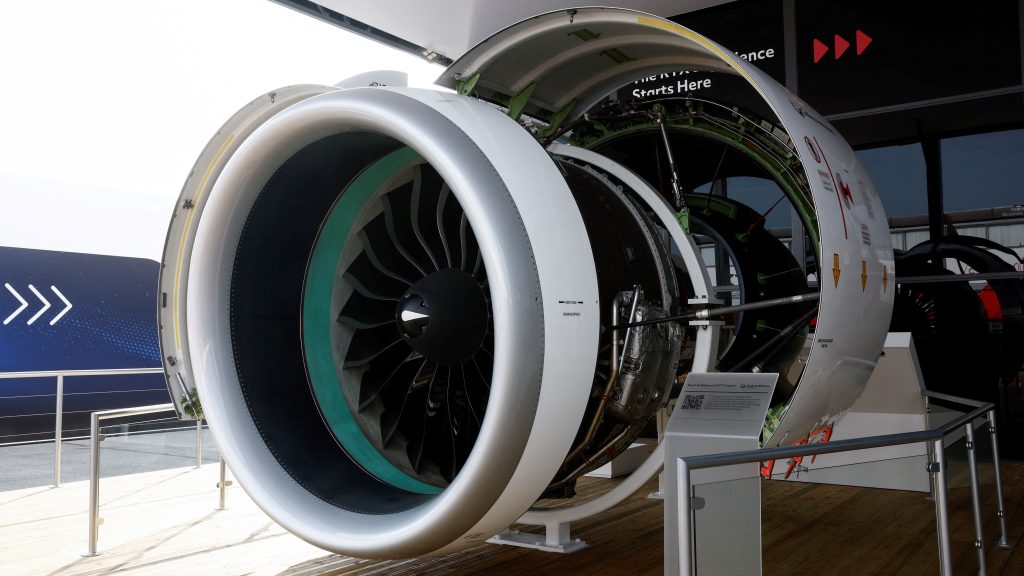
Jet engine maker Pratt & Whitney flagged “solid progress” in the aerospace supply chain on Wednesday, addressing a key area of concern for planemakers as they continue to rack up orders at the Paris Airshow.
The first two days of the world’s biggest air show saw bumper orders from Indian airlines looking to cash in on a rapid rebound in travel since the pandemic and forecasts for continued strong growth in the world’s most populous country.
In a sign of robust demand elsewhere, industry sources told Reuters on Wednesday that European planemaker Airbus was also putting the finishing touches to a deal with Mexican low-cost carrier Viva Aerobus for 90 narrowbody jets, though the deal would fall outside the show.
But recovery from the pandemic has been more problematic for suppliers, which are still grappling with rising costs, parts shortages and a scarcity of skilled labour.
That has raised concerns whether Airbus and arch rival Boeing will be able to hit ambitious goals to ramp up output in order to meet delivery targets for customers.
This week’s orders from India alone – for 500 Airbus narrowbody jets from budget carrier IndiGo and a 470-plane deal for both Airbus and Boeing jets finalised by Air India – add almost 1,000 planes to the industry backlog.
SHORTAGES
Pratt & Whitney, a unit of RTX – formerly known as Raytheon Technologies, has had a particularly tough time due in part to problems with its GTF engine that have led to the grounding of several planes.
The company said on Wednesday the groundings peaked at 10% of the GTF-powered fleet in the first half of this year, and that percentage would trend lower through the rest of the year.
The GTF is one of two engine options to power Airbus’s top-selling A320neo narrowbody aircraft.
Pratt & Whitney President Shane Eddy, who has faced a backlash from airlines over durability problems and a shortage of spare engines, told the air show he was seeing “solid progress” in the supply chain.
The company has the capacity in place to support maintenance demand but faces shortages of materials, he added.
Planemakers also face tight labour markets as they strive to lift production, but Airbus said on Wednesday it had filled more than 7,000 of the 13,000 positions it aims to add this year.
The European company, and U.S. rival Boeing, continued to sign new deals at the air show, stoking a debate about whether new fuel-efficient planes will help airlines reduce carbon emissions or whether this will be outweighed by more flights.
Aircraft leasing company Avolon signed a memorandum of understanding to order 20 widebody Airbus A330neo aircraft.
Boeing, meanwhile, won an order for four 737 MAX jets from India’s Akasa Air, confirming an earlier Reuters story, while Luxembourg’s flag carrier Luxair also ordered four 737 MAXs.
(Reporting by Tim Hepher, Joanna Plucinska, Allison Lampert, Valerie Insinna; Editing by Mark Potter)